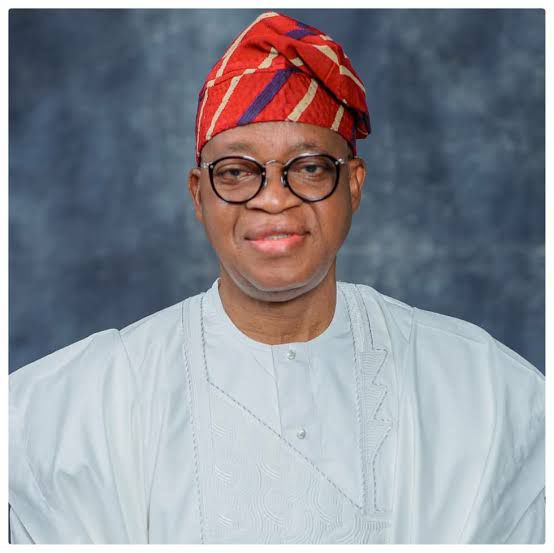The Minister of Marine and Blue Economy, Adegboyega Oyetola, has emphasised the urgent need for modern and sustainable infrastructure as the foundation for transforming Nigeria’s maritime sector into a key driver of national development.
Speaking as Special Guest of Honour at the 7th edition of the Taiwo Afolabi Annual Maritime (TAAM) Conference held on Friday at the University of Lagos, Oyetola described Nigeria’s blue economy as a “sleeping giant” with immense, yet largely untapped, potential.
“Nigeria’s blue economy is a sleeping giant,” the Minister, represented by the Director of Maritime Services, Mercy Ilori, said. “We have untapped potential along our vast coastline that, if harnessed responsibly, can create new jobs, strengthen our ports, attract investments, and safeguard our environment for future generations.
“Infrastructure is at the heart of this transformation. Modern, resilient, and sustainable infrastructure will drive efficiency and competitiveness in our ports and maritime corridors.”
The Minister highlighted key reforms introduced by the Federal Government to reposition the maritime sector as a strategic pillar of national economic growth. Among these, he cited the National Policy on Marine and Blue Economy, which offers a coordinated framework for maximising opportunities in ports, fisheries, ocean governance, marine biotechnology, renewable energy, and coastal tourism.
He also unveiled several ongoing infrastructure projects, including the Western Ports Rehabilitation Programme, the reconstruction of Apapa and Tin Can Ports, and the proposed revival of a National Carrier through a public-private partnership model.
Oyetola stressed that all infrastructure modernisation efforts must be guided by principles of sustainability, with particular attention to energy efficiency, carbon reduction, and waste minimisation.
On maritime security, the Minister noted a significant milestone: Nigeria has recorded zero piracy incidents in its territorial waters for three consecutive years. This achievement, he said, has contributed to stabilising the Gulf of Guinea and earned global recognition.
In addition, he confirmed Nigeria’s ambition to secure a Category “C” seat on the International Maritime Organization (IMO) Council — a strategic move to help shape international maritime regulations and standards.
The Minister concluded by calling for greater collaboration between government and academia, particularly in research and innovation in emerging technologies such as marine robotics.
The Chairman of SIFAX Group, Dr Taiwo Afolabi, echoed the call for infrastructure development and urged stakeholders to deepen investment in maritime education, innovation, and public-private partnerships.
Afolabi described the blue economy as a “future frontier” for Nigeria’s economic transformation and emphasised the importance of capacity-building, local content development, and consistent policy implementation.
“For Nigeria to take full advantage of its maritime endowments, we must intentionally invest in infrastructure, manpower, and policy stability,” Afolabi said. “At SIFAX Group, we are committed to supporting initiatives that strengthen the maritime value chain and promote sustainable growth across the sector.”
He also reaffirmed the company’s support for the TAAM Conference as a platform to engage young minds and develop homegrown solutions to the maritime industry’s evolving challenges.
The TAAM Conference, a joint initiative of SIFAX Group and The Maritime Forum of the University of Lagos, has grown to become one of Nigeria’s most respected platforms for maritime discourse, policy development, and industry networking.
